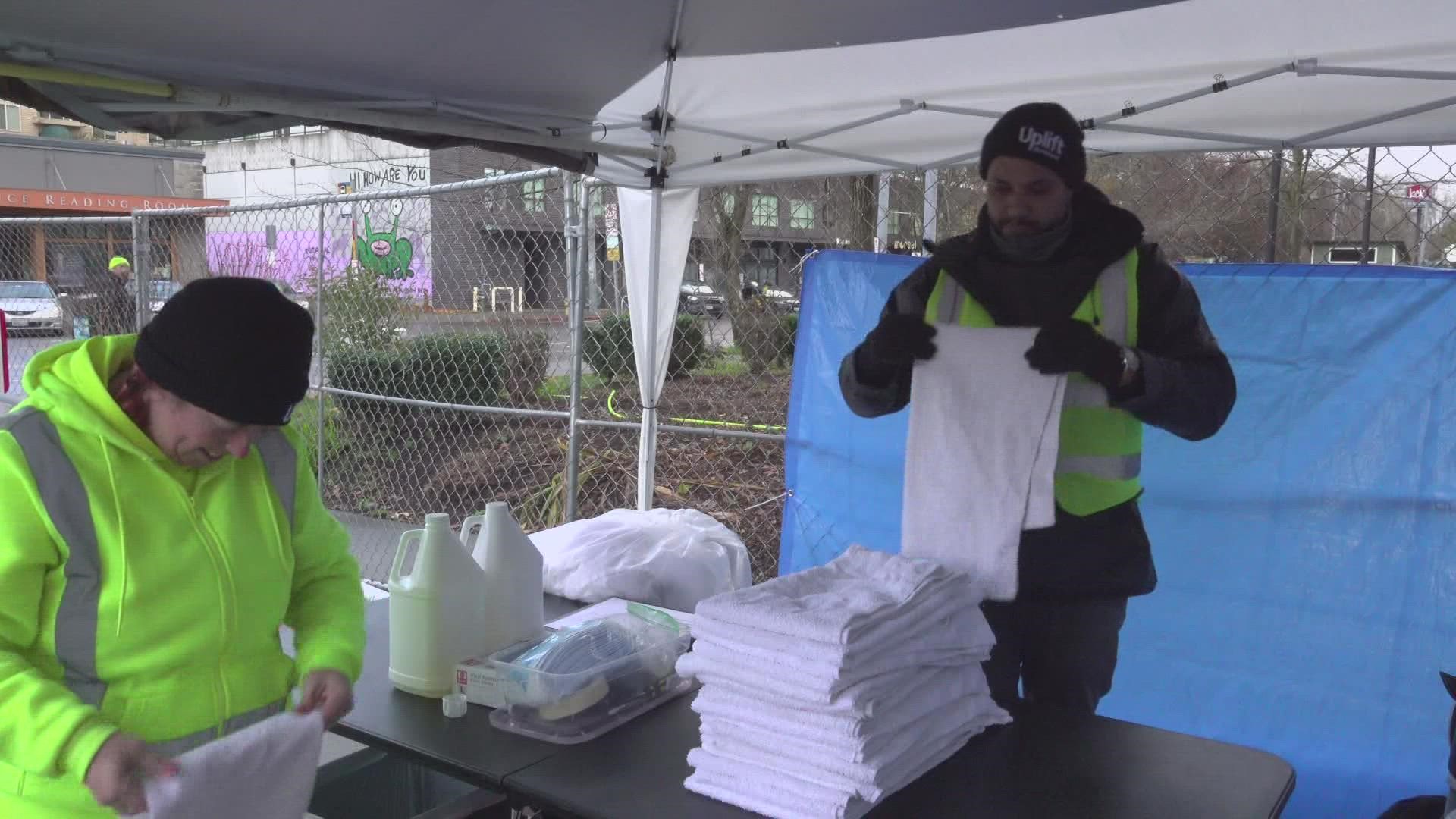SEATTLE — As Esai Garcia and Sheryl Hickman fold towels outside Seattle Public Utilities' (SPU) shower trailer near 52nd Street and University Heights, a client walks up. They stop folding and greet them with soap, shampoo and a towel, walking them through the process of using the showers.
Garcia and Hickman have been working here through a partnership between SPU and nonprofit Uplift Northwest, which offers case management, job training and staffing services. This shower trailer is parked at University Heights, which also offers a variety of services for community members and people who are unhoused.
"During COVID, the City of Seattle - which we are so grateful for this partnership - looked to Uplift Northwest, formerly the Millionair Club charity, to help them staff their hygiene centers," said Uplift Northwest Executive Director Gina Hall. "What that enabled us to do is provide project management services. So we're staffing upwards of 20-plus individuals to man the facilities and this has been lifechanging for our workers.
"The number one reason people come to Uplift Northwest is because they want a job. Not everybody's ready for a job, so we meet them where they are, identify their barriers, provide those basic need services, training, and then we get them to work."
Seattle Public Utilities started the program during the pandemic, responding to the need for hygiene services to prevent the spread of coronavirus and to what they expected would be an increased in unsheltered people. The showers have been used approximately 43,000 times.
"You have bathrooms and facilities to wash hands and help disinfect themselves. It's one opportunity for trying to help prevent spread among the vulnerable populations," said Gavin Patterson with Seattle Public Utilities. "We're trying to serve areas where there's a higher population of unsheltered people, where there's other services and also where there's good public transportation to allow people to make use of the facilities."
The city's 2022 General Fund will include $4 million to continue these efforts, including $3.3 million on the shower trailers specifically and $700,000 to cover the difference on services including portable toilets and wash stations.
"Our plan, longer term - hopefully by beginning of next year - will be to have one fixed location near Seattle Center, and we also want to have a mobile system with several locations. University Heights would be one of those, set up two days a week," Patterson said. "We're working with property owners at other locations across the city so we can bring these all across the city."
Timothy Byrnes uses and works with the showers.
"There are two different assignments - one being staff, maintaining everything around here, and cleaning the showers - and I'll be doing both this week," Byrnes said. "Hygiene is crucial, wherever you are. If you can't stay clean there's a whole bunch of problems that follow."
He says he hopes the program will not only continue, but grow.
"It's a vital resource. There needs to be more of these in Seattle, and everywhere," Byrnes said. "But it's definitely a resource that can help greatly, provided by an agency that helps greatly."

